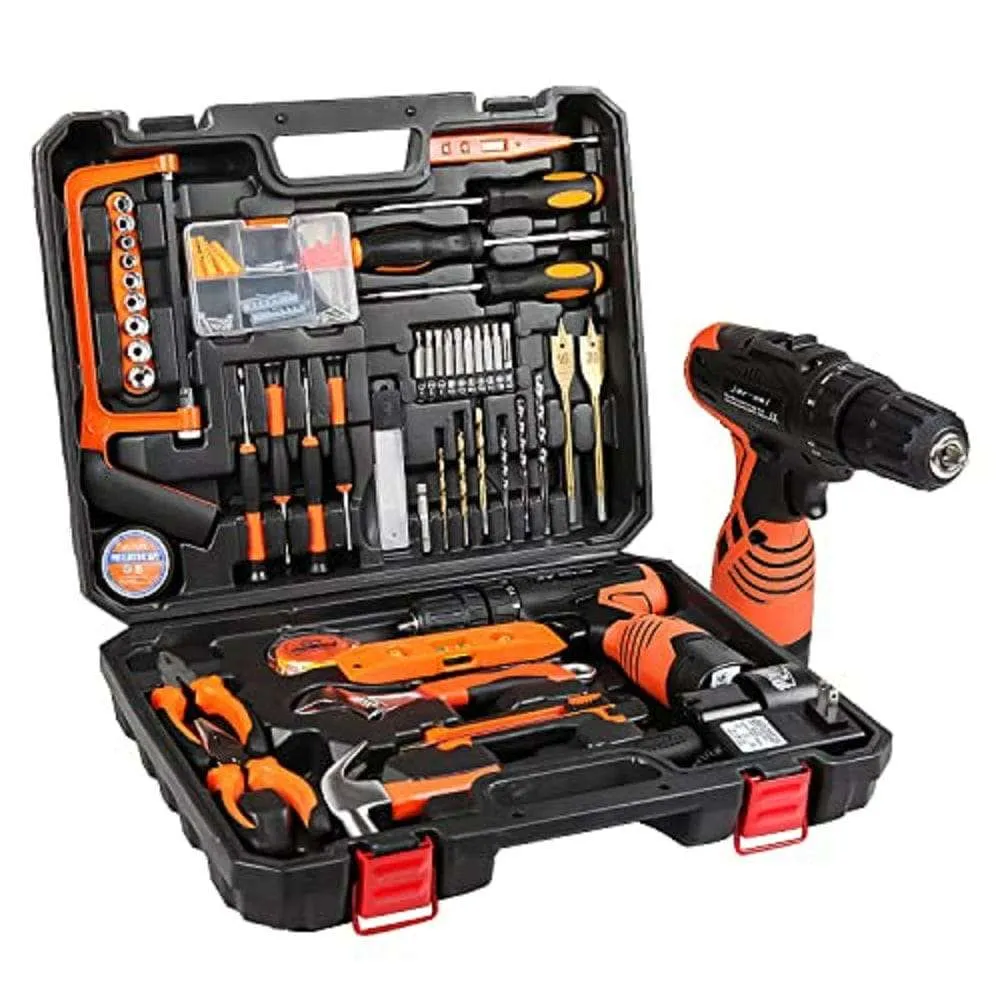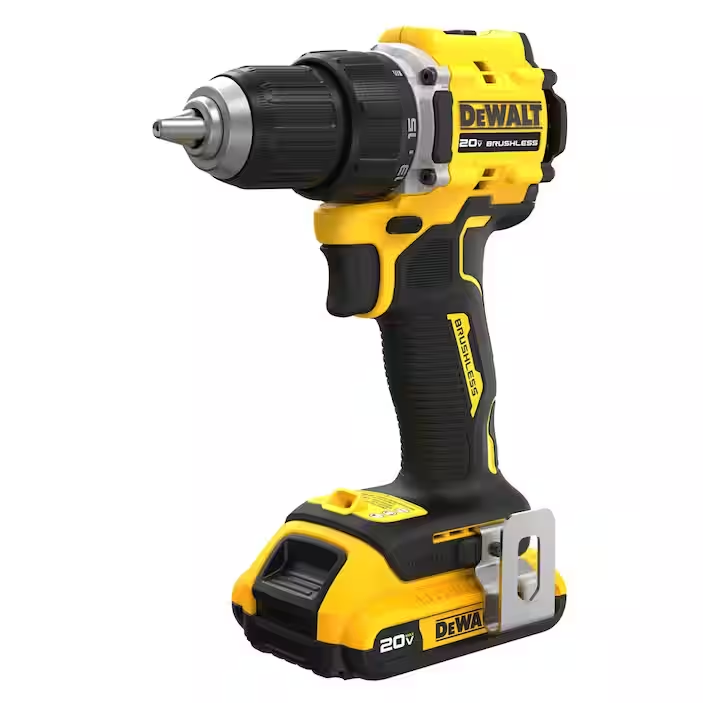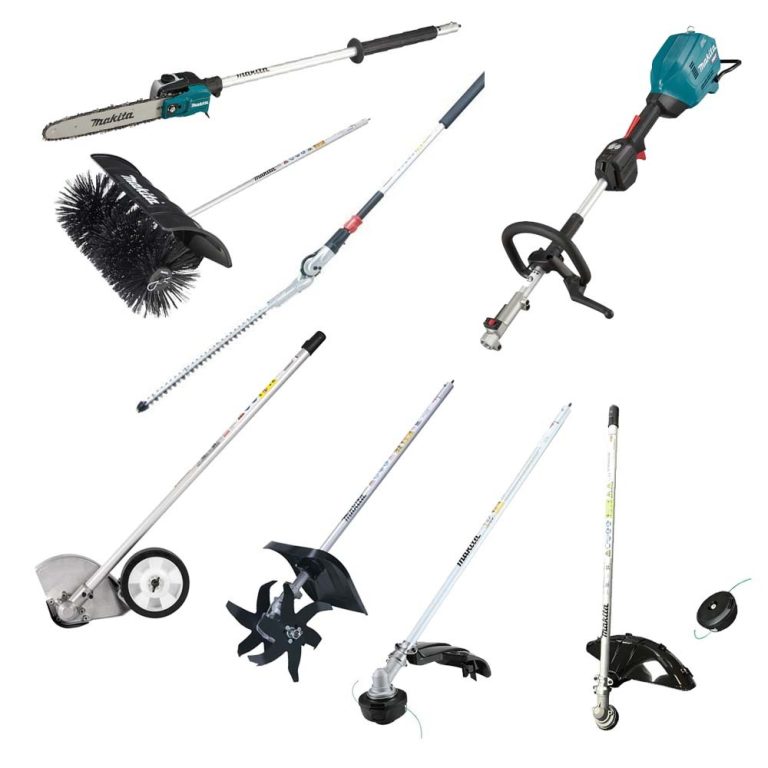
Discover Which Power Tool Brand Offers the Best Batteries in 2024
Insights on Battery Technology and Advancements
As we delve into the realm of cordless power tool batteries in 2024, we see extraordinary strides made in technology, with brands pushing the limits of efficiency, capacity, and innovation. Which power tool brand has the best batteries? This year, major players in the tool industry have outdone themselves, each bringing unique advancements to their battery systems.
The crux of these developments lies in achieving a balance between robust power delivery and longevity, all while maintaining user convenience. Enhanced lithium-ion cells, smart systems for battery management, and improved charging solutions are leading the charge. Brands have recognized the need for not only more power but also greater intelligence in their batteries, with connectivity features that allow for monitoring and optimization via mobile devices.
Moreover, there’s an evident push towards a sustainable approach, with manufacturers exploring more eco-friendly materials and production processes in their quest to lower the environmental impact.
Given these remarkable advancements, consumers have a tough, albeit exciting, choice to make when selecting a power tool brand based on its battery offerings. Brands understand that their batteries are the lifeblood of their cordless tools and are investing heavily to ensure they stand out in a crowded marketplace.

Overview of Leading Power Tool Brands’ Battery Systems
In 2024, the battery systems of leading power tool brands have undergone pivotal changes, with each brand vying for superiority. Milwaukee’s REDLITHIUM, DeWalt’s FLEXVOLT, and Makita’s LXT and XGT platforms lead with compelling offerings that cater to a diverse user base, each with distinct features and benefits.
Milwaukee continues to enhance its REDLITHIUM lineup, offering unmatched runtime and power. Their batteries boast advanced electronics and fade-free performance, promising sustained power until the last charge.
DeWalt’s FLEXVOLT system remains a versatile powerhouse, compatible with both 20V MAX and 60V MAX tools. It’s a hybrid solution that offers flexibility for users requiring tools that adapt to the task’s demands.
Makita’s approach is two-pronged, with the well-established LXT system and the more recent XGT for higher-demand applications. The LXT line serves as a testament to the brand’s efficiency focus, while XGT brings forth increased power for more intensive jobs.
The race in battery technology is more intense than ever, with smart batteries taking center stage. Integrated connectivity allows users to monitor and manage their batteries via smartphones, elevating convenience and efficiency.
Consumer satisfaction plays a significant role in shaping these offerings. Brands continue to innovate, striving not only to meet but exceed the expectations of users who demand reliability without forfeiting affordability.
As the industry propels forward, the shift towards sustainability in power tool batteries becomes increasingly imperative. Eco-friendlier materials and processes are being explored to reduce environmental impact, underscoring an industry-wide commitment to the planet’s future.
In-Depth Comparison: Milwaukee vs. DeWalt vs. Makita
When contrasting the battery systems of Milwaukee, DeWalt, and Makita, each offers distinctive benefits that cater to varied user needs. Let’s dive into a detailed comparison to help you understand which might best suit your requirements.
Milwaukee’s REDLITHIUM Batteries
Milwaukee’s REDLITHIUM technology sets a high standard in the industry with its durable construction and exceptional runtime. These batteries are designed to provide consistent power and are particularly noted for their performance in cold weather, ensuring reliability when you need it most.
DeWalt’s FLEXVOLT System
DeWalt’s FLEXVOLT system provides a versatile solution, allowing users to switch between 60V and 20V applications with the same battery. Which power tool brand has the best batteries? This feature is ideal for professionals who require robust power for heavy-duty applications as well as compatibility with an extensive range of lighter tools.
Makita’s LXT and XGT
Makita offers two different lines, LXT and XGT, to address distinct needs. The LXT line is renowned for its energy efficiency and a wide array of compatible tools, suitable for everyday tasks. On the other hand, the XGT focuses on delivering more power for high-demand applications, making it suitable for more intensive tasks.
Each brand has tailored their battery system to meet specific contractor needs, ensuring that whether you need lightweight efficiency or heavy-duty power, there is a solution available. Your choice will ultimately depend on your specific power requirements and the nature of your work.

The Game Changer: Milwaukee’s REDLITHIUM Batteries
Which power tool brand has the best batteries?Milwaukee’s REDLITHIUM batteries revolutionize the power tool industry with their exceptional performance and reliability. These batteries offer advanced power management, ensuring consistent performance under various working conditions, including extreme cold. Notably, Milwaukee’s unique battery formulation ensures that users experience minimal power fade, allowing tools to operate at peak efficiency until the charge runs out. Additionally, user safety and convenience are enhanced through integrated communication systems between the battery and the tool, optimizing performance while protecting the battery’s longevity.
With high capacity options available, these batteries are not only powerful but also versatile, suitable for both heavy-duty tasks and everyday jobs. They are engineered for longevity, providing a reliable power source which safeguards against common issues like overheating and over-discharge. Milwaukee’s commitment to advancing battery technology ensures that REDLITHIUM batteries remain a top choice for professionals seeking robust, long-lasting power solutions for their cordless tools.
DeWalt’s FLEXVOLT System: Versatility and Power
In the realm of adaptable battery platforms, DeWalt’s FLEXVOLT system rises as a standout innovation.Which power tool brand has the best batteries? It uniquely provides dual-voltage flexibility, catering to both the 20V MAX and the more demanding 60V MAX tools. This switchable capacity is a boon for professionals who need their tools to keep pace with varying project requirements.
The ingenuity of FLEXVOLT lies in its ability to automatically change voltage when you switch tools. This compatibility means you can power a heavy-duty table saw and then swiftly transition to a lightweight drill, all with the same battery. The system not only simplifies logistics but epitomizes efficiency by reducing downtime swapping out batteries.
With a commitment to versatility, DeWalt’s FLEXVOLT batteries ensure that power is not sacrificed for convenience. These robust cells deliver the energy necessary to drive high-torque tools, ensuring cutting-edge performance that’s hard to match. The expansive range of tools compatible with FLEXVOLT exemplifies DeWalt’s dedication to a unified, user-friendly system.
Moreover, their innovation doesn’t stop at versatility; power is matched with resilience. FLEXVOLT batteries are engineered with a durable design intended to withstand challenging job site conditions. The FLEXVOLT system, therefore, marks a significant advance, establishing DeWalt’s batteries as an incredibly versatile and powerful solution in the 2024 cordless power tool market.

Makita’s LXT and XGT: Juggling Two Battery Platforms
LXT: The Versatile Workhorse
LXT batteries are engineered for balance, offering decent power and excellent efficiency, making them ideal for a wide range of everyday applications. With a broad tool compatibility, the LXT line caters primarily to general contractors who require reliability for a myriad of tasks without needing extreme power outputs.
XGT: Power Meets High Demand
On the other hand, the XGT platform is designed to tackle more power-intensive tasks. It is tailored for applications where higher output and more robust power are necessary. This makes the XGT ideal for heavy-duty applications such as large construction projects or intensive industrial work that the LXT might not handle as effectively.
Navigating Between Two Platforms
While having two platforms allows Makita to cover a wider spectrum of power tool needs, it also poses a challenge for users who may find managing two separate ecosystems cumbersome. This division necessitates investment in multiple batteries and chargers, potentially increasing operational costs and storage requirements.
However, Makita ensures that each platform excels in its domain, with the LXT providing widespread tool compatibility and the XGT offering enhanced power for specialized tasks. Users need to carefully consider their specific needs to choose the most suitable platform, factoring in the nature of their projects and the frequency of use for high-demand tools.
Emerging Innovations: Smart Batteries and Connectivity
In 2024, smart batteries and connectivity represent the cutting edge of cordless power tool technology. These batteries go far beyond just providing power; they communicate with their tools and chargers for optimal performance and longevity. Here’s how the top brands are embracing these innovations.
Milwaukee’s REDLITHIUM USB System
Milwaukee has expanded its smart battery capabilities with the REDLITHIUM USB system. Users can monitor charge levels and adjust settings via their smartphone, enhancing efficiency and control.
DeWalt Tool Connect
DeWalt’s Tool Connect batteries feature Bluetooth technology for tracking and managing battery life. This helps prevent downtime and extends battery efficiency on the jobsite.
Makita’s Battery Management
Makita may not have a dedicated smart battery app, but their tools feature protective circuitry that communicates errors and requires a battery reset. This improves safety and prolongs battery life.
Smart batteries are revolutionizing how we interact with power tools. With a deeper level of connectivity, users gain unprecedented control, fostering a safer and more efficient work environment. As tools become more advanced, these smart features will likely become standard, solidifying the role of connectivity in the future of power tools.
Customer Satisfaction and Reliability Reports
When selecting a power tool brand, customer satisfaction and reliability are pivotal factors to consider. In the quest to determine which power tool brand has the best batteries in 2024, we’ve analyzed user feedback and reliability reports from various sources. Here’s what we found:
- Milwaukee’s REDLITHIUM: Customers report a high level of satisfaction with Milwaukee’s battery lifespan and ability to withstand demanding conditions. Users frequently praise the dependable power and resilience of REDLITHIUM batteries in cold weather.
- DeWalt’s FLEXVOLT: DeWalt users appreciate the versatility of the FLEXVOLT system. The brand garners positive reviews for their battery’s adaptability to both high and low power tools, which reduces downtime and optimizes productivity.
- Makita’s LXT and XGT: Makita’s reputation for battery efficiency in their LXT line and power in their XGT series holds strong. While some users find navigating two systems challenging, both report reliable performance tailored to specific tool needs.
Overall, the reports point to each brand excelling in different aspects of customer satisfaction and reliability. Milwaukee is lauded for performance, DeWalt for versatility, and Makita for specialization. This diversity caters to a spectrum of user preferences and requirements, ensuring that there’s a reliable battery option for every kind of power tool enthusiast.
Affordability vs. Performance in Battery Selection
In 2024, deciding between affordability and performance when selecting power tool batteries poses a significant challenge. As cutting-edge advancements enhance battery capabilities, buyers confront the dilemma of whether to invest in high-performance options or to prioritize budget-friendly choices. Here, we provide an analysis to aid in making that crucial decision.
Balancing Budget and Needs
For the cost-conscious, selecting a power tool brand that offers the best value for money is crucial. Brands such as Ryobi are known for their affordability while still delivering reliable performance suitable for casual DIYers and homeowners. However, professional contractors who demand robust power and durability from their batteries may find that spending extra on premium brands like Milwaukee or DeWalt is a prudent long-term investment.
High-Performance at a Premium
Milwaukee’s REDLITHIUM and DeWalt’s FLEXVOLT exemplify the premium battery segment. These batteries provide extended runtimes and power but at higher price points. For those whose work involves heavy-duty tasks on a regular basis, the initial cost may be overshadowed by the benefits of enhanced performance and superior durability.
Entry-Level Options
Cost-effective options such as Ryobi’s ONE+ system offer a compelling alternative for light to medium-duty tasks. These budget-friendly batteries are ideal for users who require less frequent, high-performance outputs and are perfect for maintaining a balance between affordability and utility.
Choosing the right battery system boils down to individual requirements and financial considerations. While premium batteries come at a higher cost, their advanced features and reliability may justify the investment for professionals. For those with less intensive needs or tighter budgets, a more affordable brand may prove to be the smarter choice.

The Eco-Friendly Shift: Sustainability in Power Tool Batteries
In 2024, sustainability has become a critical consideration for power tool brands. As consumers and regulations increasingly demand eco-friendly products, manufacturers are responding with greener battery initiatives. Here’s how top brands are participating in the eco-friendly shift:
- Milwaukee’s REDLITHIUM: Milwaukee highlights its efforts to reduce waste by designing batteries for longevity and reliability.
- DeWalt’s FLEXVOLT: DeWalt emphasizes not only power but also the efficiency of its FLEXVOLT batteries. The brand is exploring more sustainable materials and production methods but has yet to showcase a specific eco-friendly battery model.
These efforts by leading power tool brands signify a commitment to environmental responsibility. Future trends predict a rise in the use of renewable materials and eco-design principles that minimize the carbon footprint of manufacturing and usage of power tool batteries. Progress in this area is not only good for the planet but also aligns with consumers’ growing preference for sustainable options.
Future Outlook: What’s Next for Cordless Power Tool Batteries?
As we gaze into the future of cordless power tool batteries. Several key trends emerge that promise to enhance how professionals and DIY enthusiasts use their tools. Advancements are not slowing down; they are speeding up with incredible potential.
Integration of Even Smarter Technology
The integration of smart technology within power tool batteries is expected to deepen. Future batteries may feature even more advanced connectivity options, offering real-time diagnostics, enhanced performance settings, and longer battery life managed through user-friendly mobile apps.
More Sustainable Solutions
The drive towards sustainability is likely to intensify. We anticipate newer, more eco-friendly materials making their way into battery production. This shift will help reduce the environmental impact of power tools and align with global sustainability goals.
Superior Power Management Systems
Next-gen power management systems will likely become standard, optimizing the way batteries discharge and recharge. This can significantly extend the life of the batteries and improve the reliability of the power tools they energize.
Universal Battery Compatibility
As the marketplace grows more competitive, the possibility of universal battery compatibility could become a reality. This innovation would allow users to use different brand tools with a single type of battery, maximizing versatility and convenience.
Each of these advancements will push the boundaries of what’s possible with cordless tools. Looking forward, the user experience will become more streamlined, efficient, and environmentally responsible. The future of cordless tool batteries is bright, with unyielding advances that promise to revolutionize the industry.

